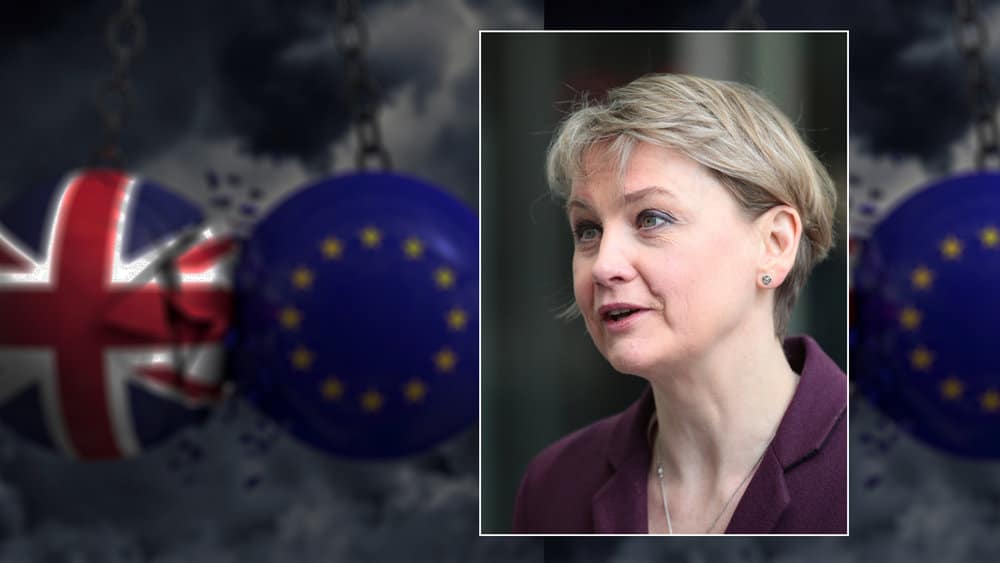
European Commission President Jean-Claude Junker has ruled out any further short extension to Article 50 saying that the 12 April Brexit-related deadline is fixed. After that date the United Kingdom’s (U.K.) Prime Minister Theresa May will need to ask for a longer extension of around a year, or risk leaving without a deal.
“If it has not done so by then [12 April], no further short extension will be possible,” said Junker. “After 12 April, we risk jeopardizing the European Parliament elections, and so threaten the functioning of the European Union.”
Meanwhile, Members of Parliament (MPs) agreed to delay the third round of debates on indicative votes to rush through a bill offered by Labour MP Yvette Cooper that will require the Prime Minister to extend Article 50 beyond the 12 April date.
The vote to debate the new legislation was passed in Parliament by just one vote, 312 to 311 votes. And the bill itself was passed late in the night also by a majority of one, 313 votes to 312. The bill will now pass to the House of Lords and if cleared there will mean May will have to ask for a longer extension.
Cooper said that the country is in a very dangerous position with a growing risk of crashing out of the European Union (EU).
“The Prime Minister has a responsibility to prevent that happening. She needs to put forward a proposal, including saying how long an extension she thinks we need to sort things out. If the Government won’t act urgently, then Parliament has a responsibility to try to ensure that happens even though we are right up against the deadline,” said Cooper.
Prime Minister May offered to hold talks with Labour Party leader Jeremy Corbyn after Parliament and her cabinet failed to reach a consensus on any way forward as Britain founders on Brexit rocks. She was hoping to take the sting out of Cooper’s bill with an amendment that allowed her more autonomy, but that was roundly defeated by 180 votes.
Talks between May and Corbyn were said to be useful but inconclusive, according to the Labour leader and they will resume again today, 4 April.
In an attempt to find some common ground, the Prime Minister angered the Brexiteers in her party and those supporting the Conservatives from Northern Ireland by agreeing to meet with Corbyn and discuss the way forward for the U.K.
However, her shift may find a way to get her unloved deal through Parliament and May hopes to finalize the details with sufficient time to leave the EU without having to take part in European Parliamentary elections.
Even so, the Democratic Unionist Party (DUP) were scathing about May’s move. “The Prime Minister’s lamentable handling of the negotiations with the EU means she has failed to deliver a sensible Brexit deal that works for all parts of the United Kingdom. That is why she has not been able to get it through Parliament.”
The DUP said that May’s announcement of talks with the Labour leader come as no surprise, arguing that, “It remains to be seen if subcontracting out the future of Brexit to Jeremy Corbyn, someone whom the Conservatives have demonized for four years, will end happily.”
The DUP said it respected the referendum result and said it would continue to use its position in Parliament to argue for the integrity of the U.K. to be maintained.
“We remain consistent in judging all Brexit outcomes against our clear unionist principles,” said a DUP statement.
At Prime Minister’s questions on 3 April, a number of Tory MPs vented their anger at May’s decision to invite Corbyn for talks. Stewart Hosie, a Scottish Nationalist Party MP asked, “After two years of Brexit deadlock, intransigence and a seven-hour cabinet meeting, the best the Prime Minister can do is invite the leader of the British Labour party to become the co-owner of her Brexit failure. Let me ask her, had she been the leader of the opposition, and invited into a trap like this, would she have been foolish enough to accept?”
Former Foreign Secretary Boris Johnson said, “The PM and cabinet have concluded that any deal is better than no deal, and this is truly a very bad deal indeed – one that leaves us being run by the EU. I can under no circumstances vote for a deal involving a customs union as I believe that does not deliver on the referendum.”
Jacob Rees-Mogg, the chairman of the European Research Group (ERG), was just as negative as Johnson. “This is a deeply unsatisfactory approach. It’s not in the interests of the country; it fails to deliver on the referendum result and history doesn’t bode well for it,” Rees-Mogg said.
The director-general of the Confederation of British Industry, Carolyn Fairbairn, echoed the words of other business leaders when she argued that, “Welcome steps must be a breakthrough, not a false dawn. Business confidence slumping, growth stalled and U.K. reputation in tatters. Tories must compromise on red lines and Labour come to table in good faith. No excuses, no time wasting, no party politics. Enough is enough.”
Dr. Adam Marshall, the Director General of the British Chambers of Commerce, said, “The clock is still ticking, and avoiding a messy and disorderly exit from the EU is still the top priority for our business communities. The government must take firm action now to ensure that this is not allowed to happen by default.”
Discussions among the EU’s 27 member states and their representatives are around the possibility of offering May an extended period – up to April 2020 – rather than allow the process to stagger over the no deal deadline.
Any such offer would come with strict caveats around the holding of European Parliamentary elections, an agreement to allow the election of European Commissioners and, most likely, an agreement that prevents the U.K. from interfering in the agreement of the EU’s next seven-year budget.










